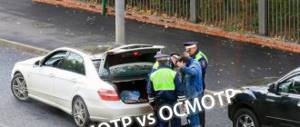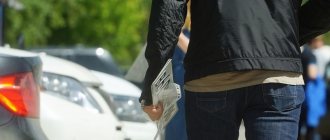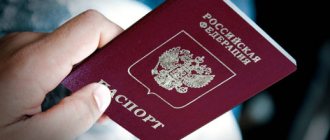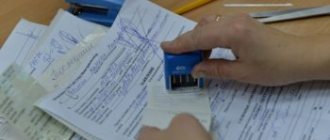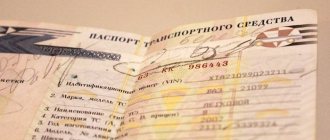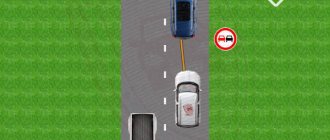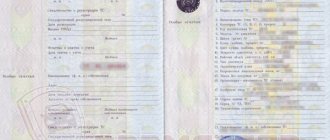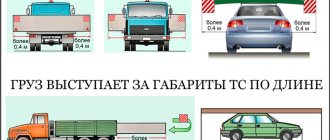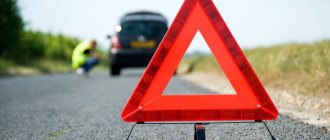So, you have already looked at this or that car, paid money for it and now all you have to do is register it with the traffic police. For people purchasing a car at a car dealership, this procedure is very quick, calm and unlikely to cause any problems.
As for new owners of used cars, you can expect all sorts of surprises. This may apply not only to the results of a forensic examination, as a result of which the purchased iron horse is wanted. In order for you to know about one more nuance, we will tell you what an examination of a car is for registration.
Types of examinations
It would be best to start with what kind of examinations are generally carried out with cars.
- The main examination that is carried out before/after the purchase. This is exactly what will be discussed in our article. We will tell you about its features and procedure in more detail.
- Forensic examination of a car . It is also carried out before/after the purchase and is mainly aimed at finding out the legal purity of the car . There, engine numbers are verified and the unique vehicle identification code (VIN) is verified. Conducted at the request of the traffic police , in case of suspicion of illegal fraud in which the car may be involved.
- An independent examination is most often carried out in order to prove to the insurance company the need to pay a larger amount if a car is involved in an accident.
- There is also an examination that is carried out after carrying out certain repair work . It is needed to ensure the quality of the installed spare parts, as well as that the repair was carried out well.
The main directions of production of automotive technical expertise:
- examination of the circumstances of the accident
- examination of road conditions
- examination of the technical condition of the vehicle
- Automotive merchandising examination – vehicle assessment
- transport and trace examination
Road accidents and other emergencies that result in property damage or death of participants are properly investigated by the relevant authorities. This is necessary to create an evidence base, render a result on compensation or pay insurance. Be that as it may, the main component of the proceedings involving motor vehicles is the automotive technical examination.
It is implemented by experts as part of an engineering and technical study of the accident mechanism in order to identify the share of blame of all participants in the process and the cause of the accident. The main causes of accidents on the road are considered to be technical malfunctions of the car that could not be eliminated while driving, as well as drunk driving, excessive self-confidence of the driver and failure to comply with traffic rules.
Automotive technical expertise in case of an accident solves a number of problems aimed at reproducing in detail all the mechanisms of the accident. Most often, requests for analysis are considered within the framework of civil claims for payment of appropriate compensation for moral and material damage caused to the victim.
Why is the main examination carried out?
Lest you think that technical inspection and basic examination are the same thing, we will only say that the examination of a car during registration is carried out much more thoroughly , and affects not only the technical component of the car, but also the legal one . The purpose of the main examination is to ensure that the car complies with certain standards, namely:
- any change been made to the vehicle that has not been officially registered with the traffic police?
the maximum permissible tinting of the glass
exceeded (in other words, is there tinting or not).- headlights are checked without fail - their compliance with GOST is studied. This is necessary to prevent accidents on the roads due to the use of “American” turn signals (unlike the generally accepted yellow ones, American automakers use red for turn warning lights, and due to the merging of the colors of turn signals and side lights, it is not always possible to distinguish the driver’s intention to turn) and blinding “Chinese” pseudo xenon headlights
- It is checked whether the required accessories : a fire extinguisher and a first aid kit, which contains everything necessary to provide first aid.
- Was the title substitution or falsification , and also whether any illegal actions were carried out in relation to the car - engine numbers were changed, etc.
Thus, if you purchased a tuning car, on which you independently installed the so-called “bucket”, neon headlights, and on top of that there is no muffler - rest assured, no one will register such a vehicle according to the law.
Please note that if you installed gas equipment, you must have appropriate registration not only for the installation, but also for the equipment itself.
I would also like to separately inform craftsmen who assemble their vehicles on their own from various spare parts - for you, such a procedure as an examination is extremely necessary
Driving a homemade vehicle will undoubtedly attract the attention of law enforcement officers, and you will definitely be asked to “show documents,” which you will not have if you do not pass the examination and register the vehicle.
Who conducts the examination
The vehicle is checked for compliance in two places:
- in the traffic police itself, by licensed employees;
- independent experts.
It is worth noting that if your car has just been purchased and needs to be registered and re-registered in your name, the procedure can only be carried out by traffic police officers.
It is the law enforcement officers who must make sure that there are no problems with the car and that it can fully move in the same flow as the others. If you want to conduct an examination on your own initiative , you can easily turn to third-party companies.
Please note that such examination can only be carried out by persons who have the appropriate permission. Buying and selling a car? Otherwise, the conclusion will not have any legal force.
However, in this matter, we strongly recommend that you trust the officials - believe me, the responsibility that lies on their shoulders for the incompleteness of the conclusion or errors in it guarantees a responsible approach to the procedure.
Order of conduct
The procedure, like any other examination, is almost standard. First, let's look at the list of documents required for the process. These include:
- Driver's license of the owner of the car.
- Vehicle technical passport
- medical certificate .
- policy .
- If you are not officially the owner of the car, you will need a power of attorney
- Purchase and sale agreement , the rules for drawing up which we described in one of our articles.
In addition to documents, of course, you will also need the car itself , in which you must drive to the place where the examination will be carried out. If the iron horse is not running, you will have to resolve the issue in advance and pay for an on-site inspection or a tow truck.
Once the machine is ready for inspection:
- They will run it through all sorts of databases and make sure of its legal purity.
- All headlight indicators against standards
- Check for changes in design . Ensure that all installed equipment is licensed and has the appropriate permits.
- Make sure that the height of the vehicle is not compromised . This applies to lovers of both “loose” and too low cars.
- The light transmittance of the glass will definitely be checked . An admirer of tinting will not receive a positive verdict.
- In conclusion, there will be a detailed description of all the identified nuances and it will be determined whether they are allowed or not. the date of the examination , the location and the full name of the persons who carried it out must also be indicated
Please note that this examination has a validity period - it is 30 days from the date of issue of the conclusion. In the event that you did not manage to use it within the prescribed period, all that remains for you is to take a new one.
The cost of the procedure varies, and depends on
where you are going to have it done , as well as what exactly is being checked.
The check during registration by traffic police officers is carried out free of charge, in any case, it is included in the payment of the fee . The procedure is carried out in one day. The prices expected in the case of an inspection on your own initiative should always be clarified by listing all the parameters for which you require a report.
The difference between such a test and a judicial test is very simple. A forensic examination is prescribed if any disputes arise in court due to an incomplete picture or insufficient argumentation. It is also carried out mainly in criminal cases.
Most often, a forensic examination is required by car owners injured in an accident, to whom the insurance company refuses to pay more than the fixed maximum amount.
A selection for you!
Download forms and sample documents for motorists to a safe place.
How is a car inspected at the traffic police during registration?
The inspection takes place at the observation deck in the registration department of the traffic police. Provide the car, the State Traffic Inspectorate employee will ask you for documents for the car and check for authenticity:
- VIN number;
- Body/chassis number;
- Car color.
The inspector will pay attention to the design of the vehicle and check whether changes have been made to it without the appropriate permission, and will also check the identification numbers with the documents.
According to Administrative Regulations of the Ministry of Internal Affairs No. 605, the procedure lasts no more than 20 minutes, but in most cases it goes much faster. Upon completion of the inspection, the employee makes a note in the statement of compliance with the vehicle’s identification data, puts down the date and time of the inspection, his name and signature.
Please note: The vehicle inspection report for registration in 2019 does not look like a separate document, but is part of the application for vehicle registration. The block of the application dedicated to the inspection of the car is called “Information about the vehicle.” The left part of the table is filled out by the owner based on the documents for the vehicle, and the right part is filled out by the traffic police officer based on the inspection.
It is not necessary to register the car on the same day on which it was inspected. The vehicle inspection report is valid for 30 days from the date of its completion.
What is vehicle forensics?
Forensic examination of a car is a check of the car for absence of violations of the requirements of norms and laws relating to the operation of the vehicle and its intended use. The procedure is carried out on the basis of the norms of Federal Law No. 73 “On state forensic activity in the Russian Federation” dated May 31, 2001.
Attention! If you have any questions, you can chat for free with a lawyer at the bottom of the screen or call Moscow; Saint Petersburg; Free call for all of Russia.
During a forensic examination of a car, specialists examine the car in detail, checking the compliance of the VIN code, license plates and other information. The data is searched through the traffic police and interpol databases. The car is checked to see if it is wanted in connection with a crime or participation in an accident.
In what cases can an examination of a vehicle be prescribed during registration?
You will be denied registration of a car if the inspection reveals that:
- the vehicle design does not meet safety requirements;
- the manufacturer's identification marking is erased or has signs of counterfeit;
- the design or markings on the vehicle do not match the data in the documents;
- the vehicle, license plates or documents are being sought.
If during the inspection a traffic police officer notices signs of forgery of documents or manufacturer's markings, the vehicle will be sent for additional examination by the Department of Internal Affairs. If a forensic expert confirms the falsification of the markings, then a criminal case will be initiated against the owner of the car under Part 1 of Art. 326 of the Criminal Code of the Russian Federation.
To avoid getting into a similar situation, you should check the documents and vehicle identification markings before purchasing. You can do this either independently using online services or by contacting a private expert firm. The service of checking documents and license plates of a car for authenticity in a private company will cost about 5,000 rubles.
Legal consultation
Get qualified help right now! Our lawyers will advise you on any issues out of turn.
Get advice from a car lawyer
First of all, when purchasing a car, the new owner must register it with the state traffic police. If the car is new, this procedure will not cause any problems to the driver. But if the car was owned by third parties for a long time, as a result of which it is impossible to find out its entire history, when registering the vehicle, it may be necessary to carry out not only an inspection, but also an examination of the vehicle.
Is it possible to choose an expert?
Yes, you can choose an expert at your own discretion, provided that the examination of the car for the authenticity of license plates and documents is needed on your own initiative. You can choose any independent bureau that has valid accreditation or contact any department of the State Traffic Inspectorate. In both cases, services will be paid according to the price list.
No, you cannot choose an expert if your car is sent for examination by executive authorities (Ministry of Internal Affairs, State Traffic Safety Inspectorate, FSSP) and (or) judicial authorities. As a rule, the accompanying paper will indicate the location of the inspection and the name of the organization that will conduct the examination.
Inspection of the car upon registration with the traffic police
The main reason for refusal to carry out the car registration procedure is a violation of the design of the vehicle. To identify such violations, the appearance of the car is checked in order to weed out vehicles with roaring mufflers, low landing, excessive tinting of windows or other technical innovations even at the stage of preparing the car for registration.
In addition to checking the car for compliance with the factory equipment or other legal requirements, by checking the appearance of the car, traffic police officers will find out whether the car is stolen.
When conducting an inspection, the traffic inspector looks at the following details:
- Checks the vehicle's VIN number, chassis and body number with the data specified in the documents for this vehicle.
- Checking the degree of glass tinting.
- Checking the compliance of the car's steering mechanism with factory parameters.
- Checking compliance of rear and front headlights with the requirements for a specific car model and GOST.
If during an inspection a traffic police officer notices violations, he may refuse to register the motorist’s vehicle.
If gas equipment is installed in the car, the owner must have the appropriate permits. Otherwise, a traffic inspector may refuse to register a car and oblige you to eliminate all violations (in this case, remove the equipment or obtain permits for it).
During the inspection, the traffic police inspector does not check the presence of a first aid kit and fire extinguisher, since this is done by a technical inspection specialist.
Car inspection procedure
Now it is not possible to register a car without a preliminary inspection. The only exception is when the vehicle is not running and cannot be delivered to the traffic police department for registration. In this case, the motorist must contact the traffic police or an independent expert in advance and order an on-site inspection.
During a standard inspection of a vehicle, it is driven through databases to check for theft, arrest and other violations of the law. Since 2017, during an inspection, the traffic police inspector does not check the numbers on the engine, with the exception of new domestic and imported cars.
All results of the vehicle inspection are recorded in a report, which must indicate:
- The date the inspection was performed.
- Place of inspection.
- Persons who conducted the inspection.
The validity period of the completed act is 30 days.
When can a vehicle inspection be scheduled?
After inspecting the car, a traffic inspector may order an examination. Such additional examination is required in several cases:
- It is impossible to read the numbers in the unit codes.
- The inspector began to suspect that the vehicle's passport had been falsified.
- There is damage to the license plates.
- The vehicle is involved in a criminal investigation.
- The examination can be carried out at the initiative of the motorist.
An examination is mandatory in cases where the owner assembled his car independently from separate units.
If a motorist believes that his vehicle was sent for examination without any reason, he has the right to appeal such a decision in court. However, this can only be done after receiving official written justification for such actions from police officers. Protecting your car from theft? If such a document is not available, you must contact the prosecutor's office.
There is another option - undergo an examination; if it does not reveal any violations, file a claim in court against the actions of police officers who exceeded their powers.
Where is the examination carried out?
If you have just purchased a car and, in the process of registering it, an employee of the State Traffic Inspectorate issued you a referral for an examination, then the traffic police will conduct it on staff and forensic specialists. In this case, the PTS is confiscated.
A forensic examination of a car by the State Traffic Safety Inspectorate, if the inspection inspector has doubts about the legal “purity” of the registered car, will be a mandatory procedure. At this very time, until the car is registered, the car cannot be used or operated, and the car owner will be appointed as the responsible custodian of the property. Based on the results of the examination, the future fate of the car will be decided.
If a car owner turns to experts on his own initiative, then he has the right to choose any third-party organization to conduct a forensic automotive examination, in any geographical location in Russia. The decisive factor will be only whether the contractor has permission for this type of work and the financial readiness of the customer.
In addition, modern research methods make it possible to conduct high-quality examination outside the stationary examination site, on the road. This service is paid additionally.
What can be determined during a car inspection?
When inspecting a vehicle before registering it, a traffic police officer will require the motorist to provide him with the following information:
- Driver's license.
- Technical passport for the vehicle.
- Medical certificate.
- Insurance policy.
- Car ownership document.
- Car purchase and sale agreement.
When registering a car with the state, the police officer pays attention to the following data:
- Owner details.
- Requisites.
- Body numbers, chassis, VIN number.
- Car color.
- Tinted glass.
- Car technical passport data.
- The name of the organization that issued all registration documents to the owner.
What can be determined during a car inspection?
Expertise does not mean a simple technical inspection of a technical device to ensure its compliance with all the requirements of GOST and the manufacturer. The examination is a comprehensive examination aimed at assessing the legality of the vehicle.
When conducting an examination, specialists check almost the same thing as during a regular inspection to register a car with the state. However, specialists use special technical means. During the examination the following are checked:
- Checking the technical condition of the vehicle.
- Assessing the authenticity of body numbers and other vehicle components.
- Checking documents if police officers have reason to believe that they have been falsified.
- Checking the vehicle against the databases of various government agencies and organizations.
What is checked during a forensic examination of a vehicle?
During a forensic examination of a car, a whole list of issues can be resolved. The procedure allows you to check:
- technical condition of the car;
- being hijacked, bailed or under arrest;
- fact of participation in an accident;
- authenticity of part numbers and components;
- authenticity of registration documents;
- participation in illegal activities.
During the examination, instrumental and documentary reconciliations are performed. Experts evaluate the technical condition of the car. Additionally, a search is performed in various databases.
Where is a car inspection carried out?
Any certified expert institution can conduct an examination of a car.
The legislation establishes the rule that only a person who has the necessary knowledge sufficient to issue an opinion can act as an expert.
The examination is allowed:
- Full-time criminologists of the Ministry of Internal Affairs.
- Independent experts.
The motorist can choose an institution convenient for him in accordance with the tasks assigned. If the car was involved in crimes, the examination must be carried out by the Internal Affairs Directorate.
An independent expert’s opinion will be required if the inspection is carried out at the initiative of the car owner. The results of the examination are entered in a special column in the technical equipment passport.
First of all, in the process of purchasing and registering a car, its owner must undergo a procedure such as an examination of the car for registration with the traffic police.
If the vehicle is new, from the showroom, there will be no problems with this process, but if the car has been in operation for some time, owned by other owners and there is no way to find out its history, the inspection and examination procedure will not only be extremely useful, but mandatory.
State and independent forensic examination
The law gives the opportunity to act as an expert to any person with the appropriate qualifications. To obtain it, you will need to graduate from an educational institution of the Ministry of Internal Affairs. Each city in the Russian Federation has a separate forensic department staff. To engage in expert activities, it is not necessary to obtain an appropriate certificate. The need for it disappeared after the Law “On Certification of Products and Services” dated June 10, 1993 lost force.
To engage in this type of activity you do not need to obtain a license. The client has the right to independently initiate the examination and choose the institution that will conduct it. An exception to the rule is procedures performed in criminal cases, technical inspections and in the event of an accident. The procedure is carried out with the involvement of ECU employees. In other situations, the inspection can be carried out by representatives of the Ministry of Internal Affairs or independent inspectors.
The advantage of contacting government agencies is a thorough approach to considering the situation. The results are considered more reliable. The services of an ESC expert are cheaper. If the forensic examination of the car is initiated by representatives of government agencies, no fee is charged. However, the final decision on the examination will have to wait longer. Private experts perform inspections more quickly. However, speed is reflected in the price of the service. The final result is less extensive. This is partly due to the fact that the Ministry of Internal Affairs has a wider base of sources. The reliability of the final results is not much lower than that of the inspector. Typically, private organizations employ highly qualified specialists. This allows you to achieve high-quality results. The inspection can be performed at a location specified by the client. Private specialists have all the necessary equipment. It gives you the opportunity to travel to any place.
Features of car inspection
If during registration you were sent for examination, you should not be surprised . This is an important procedure, without which the car will not be registered and registered.
Among the main reasons for refusal of registration are certain violations in the design of the vehicle. It is to determine such violations that a special automotive examination is carried out, during which the type of car is checked.
With the help of this event, experts from the expert service weed out vehicles with such shortcomings as a roaring muffler, low landing, excessive tinting of windows and other innovations or shortcomings of the car.
Simultaneously with a thorough inspection of the vehicle for breakdowns and structural violations, specialists check the compliance of the vehicle to ensure compliance with the factory equipment and certain legal requirements.
An even more important factor is the ability to check the car to see if it has been stolen.
Answering the question of how a car is examined when registering in 2021, it can be noted that during the inspection process, employees pay attention to such important details as:
- Checks the vehicle's VIN number, chassis number, and body number against the information specified in the documents for this vehicle.
- Checking the level of acceptable glass tinting.
- The compliance of front and rear headlights with GOST requirements for a specific car model is studied.
- The presence of a first aid kit and a fire extinguisher is checked.
In a vehicle that operates on gas equipment, special equipment must be installed and the relevant documents must be available.
If these rules are not followed, the inspection specialist is able to refuse to register the car and oblige the driver to correct the shortcomings.
Violation of all the rules listed above may be a direct reason for the fact that the car is not registered after the examination.
If during the inspection process the expert service employees identify certain violations, the owner will be denied registration.
Results of a forensic examination of a car
When the expert has completed the work, a conclusion is drawn up. It is drawn up in writing. The document records the cleanliness of the vehicle before the law. If during the inspection it turns out that the numbers do not correspond to the information recorded in the documents, or another offense has been committed, the vehicle is immediately detained and confiscated.
If it is confirmed that all unit numbers are genuine and there are no violations, legal proceedings can be initiated. The claim is sent to the traffic police officer. The reason for the accusation is the lack of grounds for sending the car for forensic examination. A mistake by forensic experts is criminally punishable. The rule is enshrined in Article 307 of the Criminal Code of the Russian Federation. Persons acting as experts are liable for knowingly giving false testimony.
General inspection procedure
Traffic police officers, in the absence of special expertise, have every right not to register the car . How to conduct an examination is a question that not only ensures safety, but is mandatory for the full operation of the car.
At the moment, registering a vehicle without conducting a preliminary inspection cannot be possible.
The only exceptions can be situations in which the vehicle is in such a condition that it cannot be delivered to the inspection site. In this situation, the motorist will be required to contact the expert service in advance and book a time for an on-site inspection.
During the normal inspection procedure, the car is run through electronic databases to check whether the car has been seized, stolen or other violations of the law.
As for the reconciliation of engine numbers, it has not been carried out since 2021 . The exception is the registration of new Russian cars, as well as foreign ones.
All results of the examination of the vehicle under investigation are entered into a special act, where the following data must be indicated:
- date of inspection;
- places of examination;
- employees who carried out the inspection.
The validity period of this document is 30 days . During this time, you need to register the car. If you miss the inspection process, you will have to go through the inspection process again.
What can be determined during an inspection?
During the inspection of the car before registering it, employees will require you to provide the following information:
- Driver's driver's license.
- Technical passport for the car.
- Medical certificate.
- Insurance policy.
- A document confirming ownership of the car.
- The official contract for the sale and purchase of a vehicle.
In the process of registering a vehicle with the state, the police officer will pay attention to the following information data:
- personal data of the owner;
- requisites;
- body number, VIN number and chassis;
- car color scheme;
- presence of tinting on windows;
- car technical passport data.
As an addition, the name of the organization that issued the main registration documents must be clarified.


